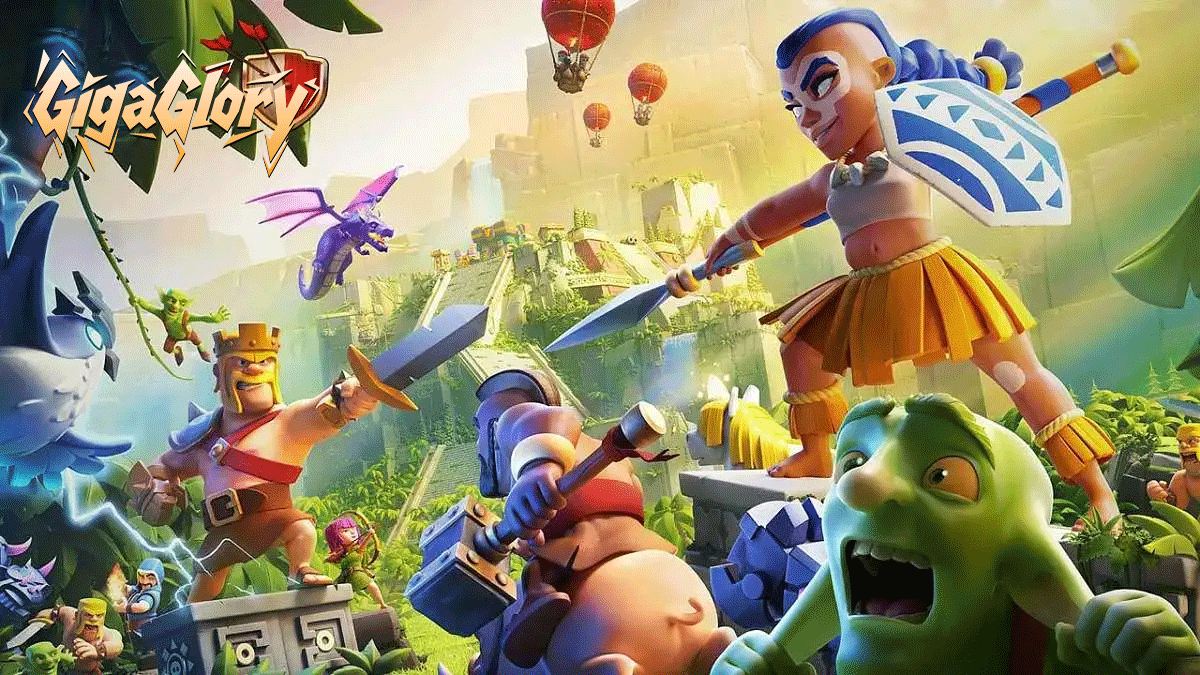Unlocking Learning: How Puzzle Games are Revolutionizing Educational Games
Puzzle games have become a significant trend in the gaming industry, especially in the field of educational games. They not only entertain but also stimulate cognitive skills, making them an ideal choice for learning. In this article, we delve into how puzzle games, including popular titles like Zelda: Tears of the Kingdom, are reshaping the landscape of education and enhancing the learning experiences for players of all ages.
The Rise of Puzzle Games in Education
The intersection of entertainment and learning has never been more prominent. Puzzle games have been recognized for their educational benefits, combining fun with learning outcomes. Educational games typically aim to engage players while developing skills such as problem-solving, critical thinking, and spatial awareness.
Understanding the Mechanics of Puzzle Games
Puzzle games often involve logical thinking and strategy deployment. These games challenge players with various tasks that require mental agility. The mechanics can include:
- Pattern recognition
- Logical reasoning
- Problem-solving abilities
- Creative thinking
This creates an engaging experience where players not only enjoy their time but also learn valuable skills that can be applied in real-life situations.
The Educational Benefits of Puzzle Games
There are many advantages to integrating puzzle games into educational systems:
| Benefits | Description |
|---|---|
| Enhances Critical Thinking | Puzzle games stimulate the brain, encouraging players to think critically. |
| Improves Concentration | Players must focus on solving challenges, which boosts their concentration levels. |
| Promotes Teamwork | Many puzzle games can be played cooperatively, fostering collaboration among players. |
| Boosts Memory | Memory skills are sharpened as players try to remember patterns and sequences. |
A Look at ‘Zelda: Tears of the Kingdom’ and Its Impact
One of the recent puzzle games to hit the market is Zelda: Tears of the Kingdom. This game incorporates various challenges that require players to engage in problem-solving and critical thinking. The Gerudo light puzzle, for instance, is a perfect example of how players can improve their cognitive abilities while having fun.
The Gerudo Light Puzzle
This puzzle involves manipulating light beams to solve challenges. Players must think strategically about the placement of mirrors and the angles at which they direct light. This type of problem requires attention to detail and offers a rewarding experience upon completion. Through such puzzles, players develop not just gaming skills but also real-world cognitive skills.
Why Parents Should Consider Puzzle Games
Parents are increasingly looking for educational solutions to complement traditional learning methods. Puzzle games present a unique opportunity for growth. Here are a few reasons parents should consider these games:
- Learning through play: Kids can absorb information without the pressure of traditional education.
- Engagement: These games can hold a child's attention longer than standard educational materials.
- Adaptable learning: Many puzzle games adjust difficulty levels, catering to the player's skill.
New RPG Games for PS4: Expanding the Puzzle Game Genre
The landscape of puzzle games is expanding with new RPG games for PS4, offering exciting elements that integrate puzzles within narratives. These games challenge players’ intellectual capabilities while providing immersive worlds. Titles like these not only offer engaging storyline challenges but also deepen the educational aspect by intertwining puzzle-solving with character development.
Integrating Puzzle Games into Educational Curricula
Educators are looking at innovative ways to incorporate games into the classroom. By using puzzle games, teachers can introduce new topics with interactive elements that allow students to explore concepts dynamically. Suggested methods include:
- Setting up game sessions as part of learning modules.
- Creating a competitive environment with puzzle-solving tournaments.
- Encouraging pair or group work to solve challenging puzzles.
The Future of Educational Games
As technology continues to evolve, so will the possibilities within educational gaming. Virtual reality and augmented reality present thrilling opportunities for puzzle games, teaching students in immersive environments. Imagine solving complex puzzles within a historical setting or a math challenge in a spatial, 3D world. The educational gaming arena is only set to grow!
Key Takeaways
To sum it all up, puzzle games are not just a fad; they are transforming educational experiences in remarkable ways. By enhancing critical thinking skills, improving concentration, and offering collaborative opportunities, these games provide a platform for effective learning. The fusion of entertainment and education has created exciting new avenues for engaging learners of all ages.
FAQs
What are some popular puzzle games used in education?
Some popular titles include Zelda: Tears of the Kingdom, Portal 2, and Professor Layton series, which all engage players intellectually.
How can puzzle games improve critical thinking?
Puzzle games require players to analyze problems, consider multiple solutions, and make decisions based on logic, enhancing their critical thinking capabilities.
Are there specific age groups that benefit the most from educational games?
While all age groups can benefit, younger children often experience significant developments in problem-solving and cognitive skills through engagement with educational games.
Conclusion
In conclusion, puzzle games are revolutionizing educational games by making learning engaging and interactive. Their ability to challenge and stimulate the mind creates a unique balance between enjoyment and educational value. As we move forward, it’s essential for both developers and educators to continue exploring the potential of these games, fostering skills that will be vital for future generations.



